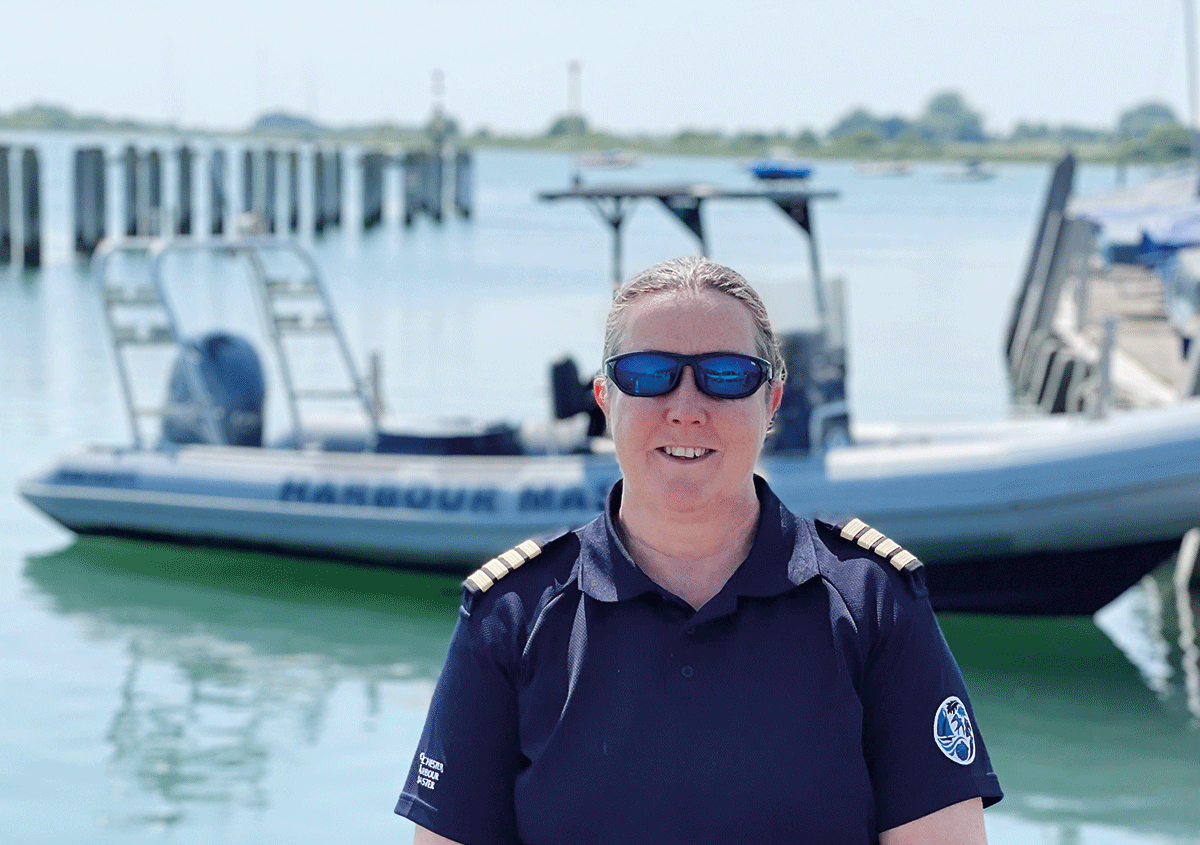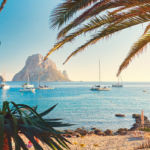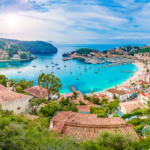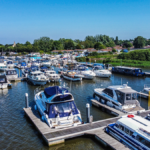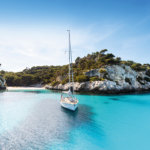Q How have you settled into your new role with Chichester Harbour Conservancy?
JC: It has been a busy but enjoyable few months getting to know the harbour and settling into the role. Thankfully I am supported by an excellent team who all share a passion for protecting and preserving this amazing place.
Q You have a fascinating maritime background including the Merchant Navy and British Antarctic Survey. You must have some amazing memories – can you share any highlights with our readers?
JC: I feel very privileged that much of my career has been spent in some of the most untouched and beautiful parts of the world. One of the most incredible parts of working in Antarctic waters is the sheer abundance of wildlife. Everywhere you look, there is life, be it whales, seals and penguins in the water, or the giant majestic albatross gliding through the skies. A particular stand out was a night watch towards the end of the Antarctic season. I was working the ship through pack ice with the aid of high intensity search lights. We made our way to an open pool of water, and out of nowhere six orcas appeared in front of us in the searchlight beam. I stopped the ship and stared in awe as they glided back and forth across the bow.
Q You were previously Harbour Master in the Falklands and the Antarctic island of South Georgia; what was it like working in those places?
JC: Both places had their unique challenges. In South Georgia, the over wintering population of the island was only eight people. With such a small team we all undertook many different roles. For me these included Harbour Master, fisheries officer, post master and bio-security officer. But Harbour Master in the Falklands is probably the most challenging role I have held. A small team of four was responsible not only for the safe running of the harbour, but also all the functions of a Port, Coastal and Flag state. With more than 1,000 commercial vessel movements a year, and upwards of 7,000 souls fishing in the waters around the islands it was certainly a busy place to be.
Q What brought you back to the UK from the Falklands?
JC: My dream job in a place I know and love.
Q You have an interest in the environment. What is Chichester Harbour doing to promote environmentally friendly boating in the local area?
JC: Water quality is a really hot topic and one that the Conservancy takes very seriously. We are working to ensure that all boats using the harbour have access to pump out facilities. We have free pump out on the Conservancy jetty in Itchenor, and the Friends of Chichester Harbour have agreed funding to ensure that all marinas in the harbour also have pump out facilities.
Electric propulsion is a rapidly expanding sector of the market, and the Conservancy is already operating two electric vessels. We are looking to expand this number over the coming years. We are also looking at infrastructure improvements to provide charging for visiting vessels.
Q What plans do you have for the harbour over the coming year?
JC: I am keen to expand the on the water presence of the patrol team, with more hours afloat to provide advice and assistance to vessels using the harbour. We are also hoping to get plans approved to expand the main jetty at Itchenor. This would provide overnight, walk ashore berthing for visiting vessels together with electric vessel charging.
Q You have seen a great deal of the world, but where else would you like to visit?
JC: Since returning home I have caught the campervan bug! This has made me realise how little of the UK I have visited. I have already ventured to Shetland and am looking forward to exploring the UK and catching up with friends and family along the way.
Q If you could have dinner with any two people from history, dead or alive, who would you choose?
JC: Robin Knox Johnson and Ernest Shackleton.
Q Tell us something people might not know about you!
JC: Before embarking on my seagoing career, I completed an engineering apprenticeship with Land Rover.






